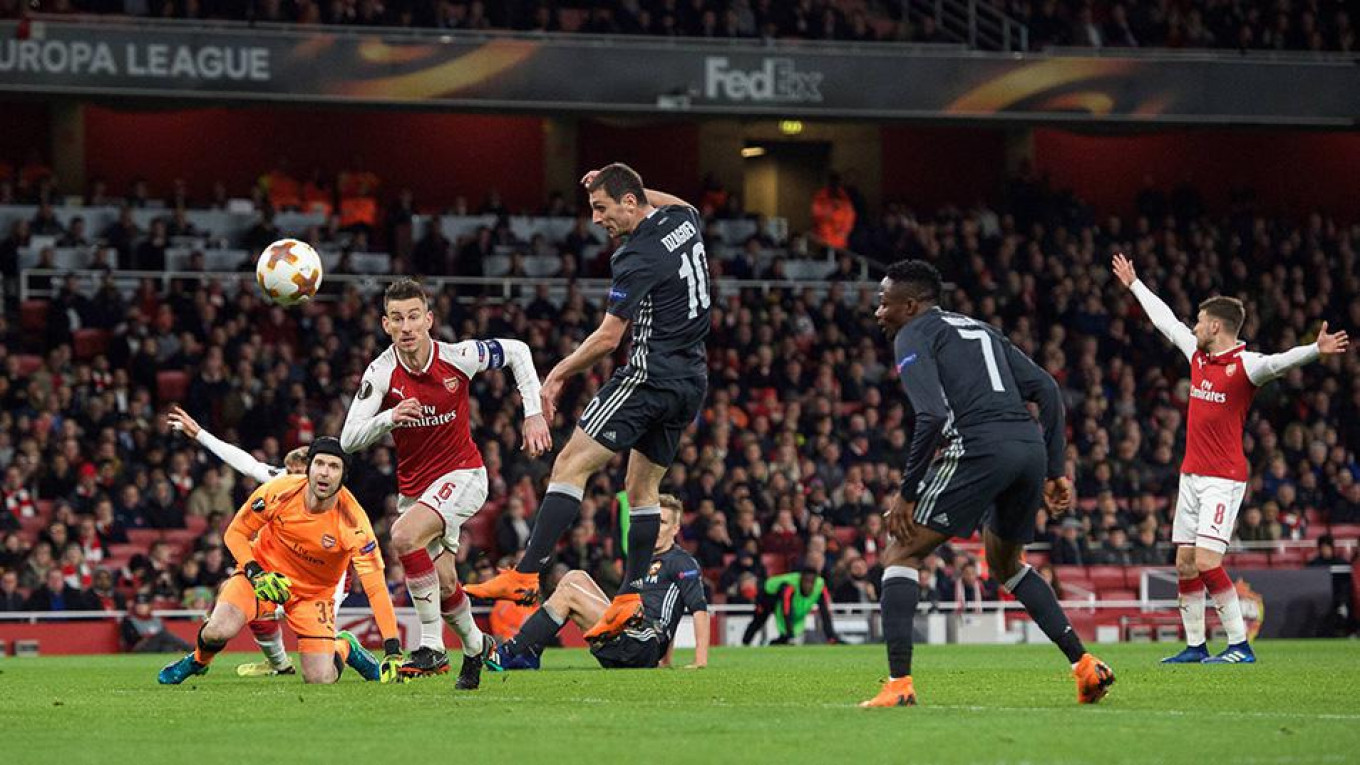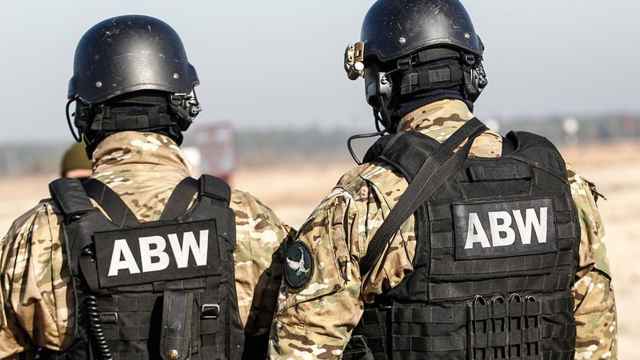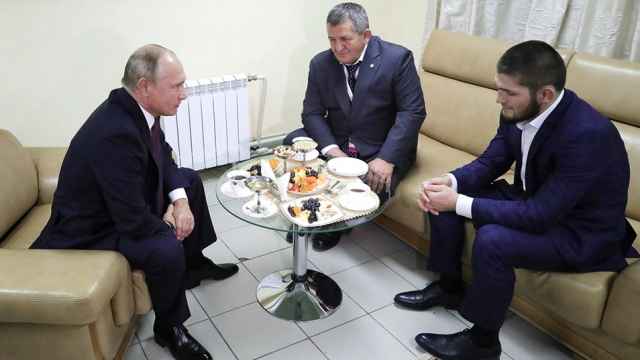If CSKA Moscow’s fans were worried they would be met with hostility during their jaunt to London for a match against Arsenal on Thursday night, their worries were overblown.
“There were no problems at the border, with police, or with security at the game,” said a commentator for Russia’s sports channel Match TV during CSKA’s 4-1 drubbing. “The only problems came from Arsenal players.”
London security was prepared for the Russian fans. Police stood at the ready near the stadium entrance where they were meant to arrive. According to local press, it was a heightened police presence compared to an ordinary match at Arsenal’s Emirates Stadium.
When the Russians did arrive, no hooliganism ensued. The supporters — 124 of them according to stadium staff — snapped photos and broke out into chants before heading in. British fans milled about, paying little attention to them.
“We’re here to drink and to have some fun,” said Sergei Ivanov outside of the stadium before the match. The 27-year-old CSKA supporter had traveled from Moscow simply “to have a good time.”
Tensions between Russia and England had been escalating over the past month after former spy Sergei Skripal and his daughter Yulia were found poisoned on a bench in the southern English city of Salisbury on March 4. Britain and its allies expelled dozens of Russian diplomats, and Moscow responded in kind.
In the midst of it all, two of the countries’ top clubs were paired against each other in the quarterfinals of a European football tournament. The second match of the two-leg tie will be played this Thursday in Moscow.
Supporters on both sides who spoke with The Moscow Times on match day in London were aware of the political tensions, though, and the Russians in attendance represented only 25 percent of the 500 tickets allotted to traveling supporters.
Arsenal has been given 1,000 tickets for the match in Moscow, but it remains to be seen how many will make the trip.
“It is a security risk,” said John Pike, 33, at an Arsenal supporters’ pub of traveling to Moscow. “From what I’ve heard, you have to stay in a group and don’t go off the beaten path. As soon as they know you’re English, they’ll target you.”
Many among dozens of fans in the pub also said that they had no intention of attending this summer’s FIFA World Cup in Russia either, due to the same concerns.
“I watched a television program on Russian hooligans a few months ago,” said Luke Rotherham, a 23-year-old electrical engineer. “There’s no way I’m going over there. I’m a little guy, they intimidate me.”
Ahead of the tournament, British media has covered the dangers of traveling to Russia extensively. As one Guardian journalist wrote, although he has followed England around the world for 25 years, Russia is too risky. He pointed to the 2016 European Championship in France, where Russian hooligans had famously set upon British supporters in Marseilles in an “organized nature” with “gum shields and mixed martial arts gloves.”
At the pub ahead of the CSKA match, Arsenal and England fan Daniel Clap noted that he had been in the port city during the clashes. “That put me off Russian supporters,” he said. “And Russia’s even more dodgy — that’s their home turf.”
Marc Bennetts, a British Moscow-based journalist who has written extensively on Russian football hooligans — and has argued that the Kremlin will not tolerate hooliganism at its world showcase event — told The Moscow Times that fans’ fears are unfounded.
“It’s not really Russian hooligan behavior to target civilians,” he said in a phone interview. “They go for people they see as equals. They likely saw what they thought were hooligans and decided to go after them.”
“Marseille is also a street-drinking city,” he added. “It would be much more difficult to pull that off in a city like Moscow.”
If supporters needed any convincing — after the second phase of World Cup ticket sales, England fans were already among the lowest buyers — Britain’s Foreign Office warned last month against traveling to Russia.
"Due to heightened political tensions between the U.K. and Russia, you should be aware of the possibility of anti-British sentiment or harassment at this time," the office said in a travel advisory. Arsenal followed suit.
In advance of Thursday’s match, the Russian Embassy in the U.K. urged CSKA fans traveling to London to “behave with our inherent dignity” to avoid “provocations.”
Some, perhaps, missed the memo. Asked if he was worried about the diplomatic escalation, one Russian supporter pulled out a tin of mints and asked his friend if he should offer a reporter some “Novichok,” the nerve agent used to poison the Skripals.
Thursday was not the first time the two sides met amid heightened political tension.
The last time CSKA played Arsenal in London was in 2006, on the day former Russian spy Andrei Litvinenko was poisoned in England. One of the main suspects in the murder, Andrei Lugovoi, had attended the match, and trace amounts of the poison used were later found in the stadium.
At the time, Lugovoi denied that Russians could have poisoned one of their own on British soil. Now a pro-Kremlin Duma deputy, he once again shrugged off Western accusations.
“The English are suffering from phobias,” he told reporters in Moscow before the match. “Whenever something happens with Russians they immediately look for a Russian trace.”







